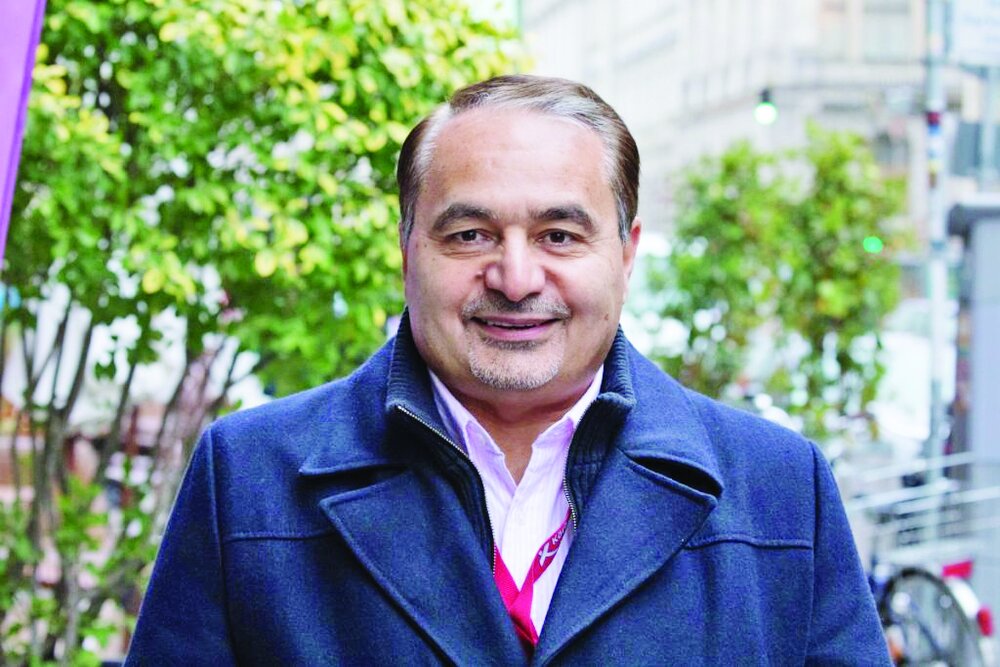I took over as Tehran Times director upon Beheshti’s advice: Mousavian

Seyyed Hossein Mousavian says he accepted to take over as managing director of the Tehran Times upon a suggestion by Ayatollah Mohammad Hossein Beheshti, known as martyr Beheshti, during a meeting in Kashan in 1981.
As the Tehran Times is marking four decades of activity, our correspondent talked to Mousavian, now a Princeton University researcher.
Following is the text of the interview:
1- How did you get to know the Tehran Times?
It was during the Noruz holiday of 1981 when I met martyr Ayatollah Beheshti in Kashan. He was the guest of late Ayatollah Seyyed Mehdi Yasrebi. It was there he asked me to take the helm of the Tehran Times. I had begun studying religious sciences in Qom for about 8 months. But he smiled and said, “After 30 years of studying in seminaries, I have spent my entire life on the (Islamic) Revolution, and now your responsibility is to serve the revolution as much as you can.” Therefore we wrapped up everything and left Tehran to run the Tehran Times.
2- How do you evaluate the status of the Tehran Times inside and outside the country?
Basically, Iran has not been able to have an international valid newspaper as good as other world-famous newspapers not before the revolution and not after the revolution, however, the Tehran Times acts as a worthy dissemination source for foreign embassies, foreign residents in Iran, and for those outside the country.
3-Considering the permanent world pressure on Iran, what are the challenges of an English newspaper in Iran?
The main challenge of an English newspaper in Iran is lack of foreign tourists and residents in the country. If our economic and political relations with the world was normal, at least 10 million foreigners would have been working in Iran, and about 30 million tourists would have visited the country every year, and such great numbers would sure be good financial support for an English newspaper.
The second challenge for an English newspaper in Iran is that our officials do not either believe in the necessity of world public opinion and diplomacy or they do not do their best to, and that is why we don’t have a foreign newspaper suitable for Iranian needs in the field of global dissemination.
4- How did you feel when you first stepped into the office of the newspaper? How do you interpret this statement of Beheshti about the Tehran Times which says, “The Tehran Times is not the voice of the government, but the voice of the revolution?”
Even though Tehran Times was the only major source of information in English language on post-revolution Iran, it was running into financial trouble.
I visited martyr Beheshti and told him about the situation. He invited Haj Ali Asghar Rokhsefat, a religious well-off figure and an official of the then Islamic Financial Institution, and asked him to pay the debts of the daily.
Later, Irfan Parviz was perhaps the only expert left in the daily. He entered my room the very first day I arrived in the office and told me “If you want to fire me please let me resign myself”. But I warmly received him and told him you will not only stay but will help me as a senior editor and tell all the employees that nobody would be fired.
He broke into tears and hugged me and worked for the daily with all his heart until the year 1991, the last day of my management in the office. But all the friends in the daily know that he was so in love with the daily and served the best he could. God Bless his soul.
5– When you were the managing director of the daily, what were your plans and programs for the future, and which ones did you achieve?
My first goal was to save the newspaper from bankruptcy and this took two years. The second problem was the newspaper had a daily circulation of 20,000 but had dropped into 1000 and during the first year, it got to 10,000.
The third step was to find a proper building for the office and make it equipped. The office was in a rented apartment but we could manage to relocate it into a four-floor building. My other major goal was to publish the daily in India to cover the East, in Europe to cover the West and in Nigeria or South Africa to cover Africa. This was not possible without foreign currency. Those years Iran was involved in the (Iran-Iraq) war and the country’s treasury was empty. We pursued the idea for five years and could only hire several representatives to distribute the daily outside Iran, however, I could not publish the daily in three continents simultaneously after years of effort.
6- Considering your media experience, what do you think is the difference between journalism in Iran and the West? How can Iranian foreign newspapers have more effect on public diplomacy? Please give us a guideline for the future of the Tehran Times?
The media in the West cannot be compared with the media in Iran. Even countries like Turkey, Saudi Arabia, and the Emirates (UAE) have acted better than Iran. The weakness of Iranian media is its “world diplomacy”. The media is one of the main tools of world diplomacy in the countries but unfortunately, Tehran has been acting very weakly about it. My suggestion to my friends in the daily is to try to publish the newspaper simultaneously in several countries.
